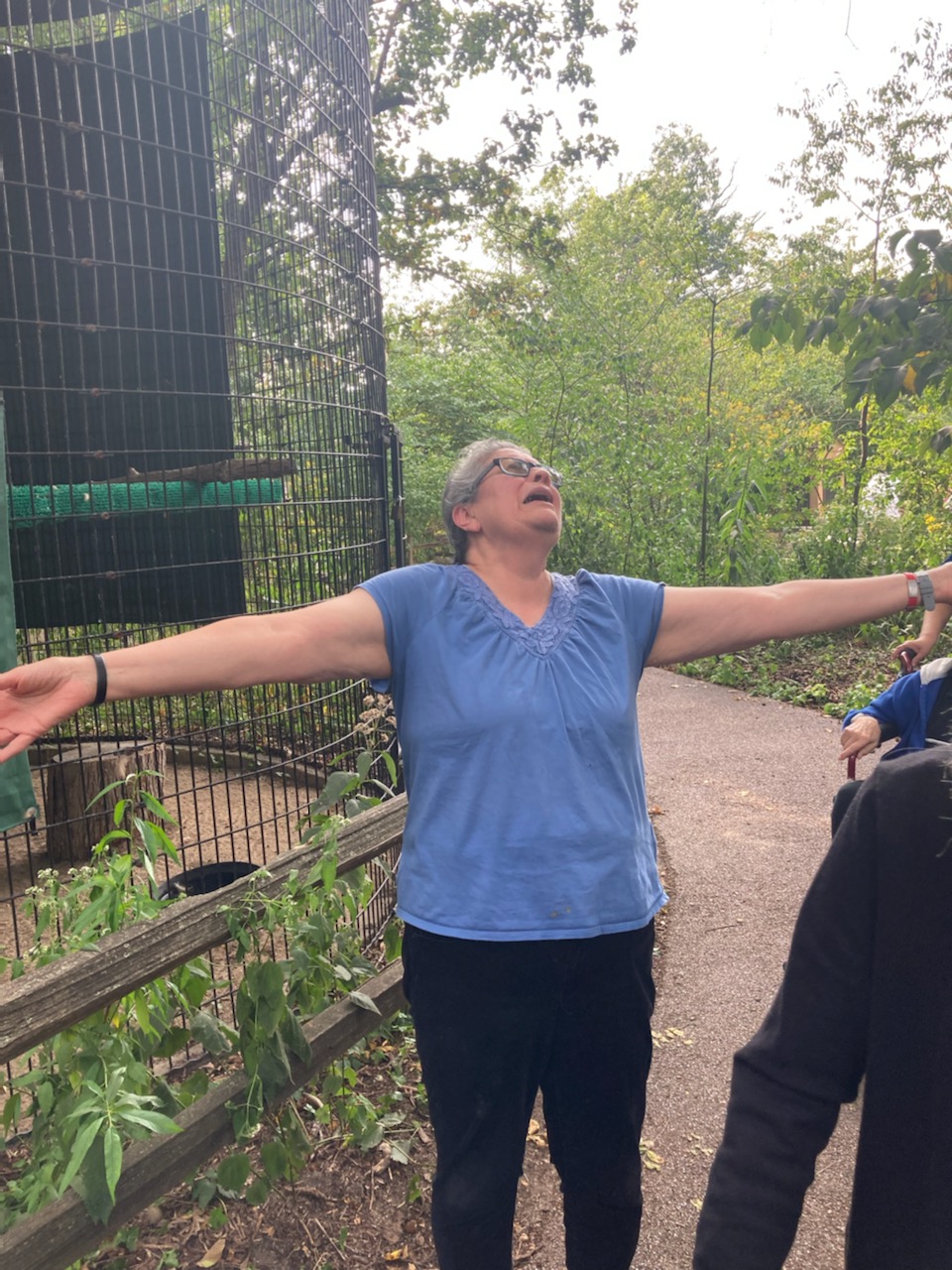This has been an amazing experience. Thank you all for sharing your knowledge.
It’s was a moment captured. A moment where Maria was out to a small park with others from the memory care unit where she now lives, and the staff person asked her how she felt about being there. And in that moment, Maria lifted arms in joy and the photo was taken.
Maria has lived with younger onset Alzheimer’s disease for over 10 years with her husband. Not all those moments were like the one in the picture. There have been moments of anxiety, confusion, calm and contentment. There have been moments of friendship, grief, love and fear. But in the moment here, there was joy. Her husband Daniel stated, “I was so moved to see such a perfect visual depiction of the point Maria has arrived at in her dementia journey. With her verbal skills greatly reduced, she’s still able to express joy and laughter quite vividly these days, in contrast to the confusion and discomfort that characterized the past several years for her. She’s always been a delight to be around, but now it seems as if she’s given herself permission to tap into her “wild and crazy” side. And her caregivers seem to “get” her newfound (or rediscovered) sense of humor.”
As Dementia Leaders, how do we find these moments for the people with dementia who we support. How do we create the spaces where people with dementia can feel joy or love, contentment or calm?
Those moments might have much more to do with us than we might think. There was a time when we, as dementia care staff, felt that people with dementia would feel anxious and there was not much we could do to change that. We had to learn that the impact of dementia was much more than solely an internal process. It has to do with relationship or lack of them. Dr. John Swinton in his book Dementia: Living in the Memories of God wrote “It may in fact be that the staff haven’t been taught how to understand people rather than how to “cope” with them.” (p. 101)
We can make the moments for people with dementia better. We can also look at moments of anxiety, fear, or anger for the person and see if anything in the world around them can be changed to reduce that feeling.
So much has to do with the world we develop around the person. Dr. Swinton, in his same book wrote, “Dementia doesn’t entail a loss of self. Understood properly, the self remains intact even in the most severe forms of dementia. Any loss of self relates to a failure of community.” (p. 108)
This community involves relationships. It involves the other staff members and people living with dementia. It involves knowing the person and understanding their story. It involves being flexible and encouraging staff to take direction from the people with dementia.
When we, as Dementia Care Leaders, realize the profound impact we play on the experience of dementia, we will create moments of connection and love, just like the moment captured from Maria for all of us to enjoy.

